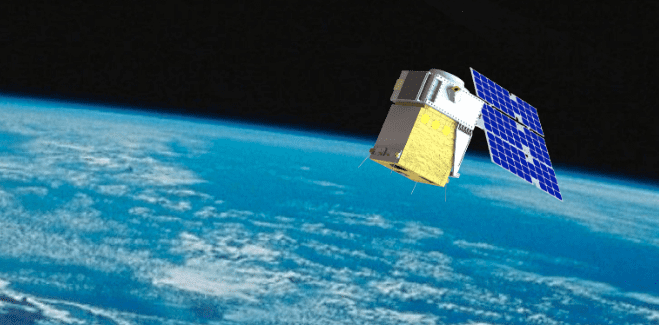Latest News

A Loft Orbital satellite. Photo: Loft Orbital
Startup Loft Orbital wants to shake up space with technology standardization. Their proprietary Payload Hub technology is a universal payload adapter that can fly any payload on a standard satellite bus.
The company, which is in its infancy, received $3.2 million in seed funding in 2017, with an additional $13 million of Series A funding in late 2019. Via Satellite spoke to Ubiquity Ventures Managing Partner Sunil Nagaraj about his investment in Loft Orbital, why he’s excited, and where he sees the company going next.
VIA SATELLITE: What piqued your interest in Loft Orbital?
Nagaraj: I’ve looked at hundreds of space startups since I began investing in space and NewSpace in 2014. At that time, David Cowan and I at Bessemer Venture Partners led Rocket Lab‘s [Series] B round. In 2015, we invested in Spire. Since 2015, I haven’t made another space investment, despite meeting [many] space startups. In contrast, what stood out about Loft Orbital, against this backdrop of hundreds of space startups, is that Loft was providing a real service with a real pipeline of customers across several different verticals.
A lot of space startups are founded by technical innovators who are thinking about what’s possible, as opposed to what customers really want. It’s a subtle nuance, but it makes a world of difference. When someone says “Look what I can do” — that’s a really different business than “Look what people want.”
So, Loft Orbital is offering multi-payload condo satellites. Their pipeline includes customers that are other space startups … another part of their pipeline is U.S. government and military, and another is foreign governments who want to have a space program — which is a really exciting thing. The final part of the pipeline is large space companies that make a lot of money today, that are interested in NewSpace. To me, that diversity of pipeline was the single biggest thing that stood out when I was talking to Loft Orbital.
I first met the team because they came from Spire. I was pleased to see their ideas of making space more accessible, and bringing down the cost and the time to get to orbit, actually manifest inside contracts, and [having] booked launches was really exciting.
I also liked the parallels to Amazon Web Services (AWS). In a way, AWS makes it so that you can write code and make it available to the world without having to worry about servers, internet connectivity, and complicated steps, so that more people can push out software applications. That’s exactly how I think about Loft Orbital — they handle the complexities of space, so the customer can hand off the payload, and Loft Orbital gets it to space and running and downlinking data very quickly.
VIA SATELLITE: How much funding has been raised to date?
Nagaraj: I believe the seed was 3.2 million, and the Series A was 13 million. There’s very few — if any — space companies that can raise a 3.2 million-dollar seed and have real product and real signed companies, with customer deposits received. That’s extremely rare.
VIA SATELLITE: What is the timeline for the company in the next few years?
Nagaraj: Most companies generate an idea, develop a product, iron out all the R&D, close customers, and then put the product in the customer’s hands. In 2020, we’ll have our first Loft Orbital satellites on orbit, with customer payloads generating data, downlinking data for the customers, and generating revenue for us. It’s unclear how many — but I feel very confident that we’ll have a couple of satellites on orbit. The number of customers on each satellite can be quite diverse and large, so this year we ought to have several satellites with many customers benefiting from our service.
VIA SATELLITE: Are there any other big points you want to share?
Nagaraj: The big point is that Loft can trigger more customers utilizing space, in the same exact way that AWS and Google Cloud triggered, arguably, a 100x increase in the number of customers utilizing cloud-based software applications. Prior to Loft, you had to be a deep technical expert in a lot of areas to even dabble with space applications. Loft’s vision is that customers can skip the development of space expertise because they can rely on Loft Orbital, and still get a lot of value out of space. That’s their dream, and that’s what I think will happen with the company.
Get the latest Via Satellite news!
Subscribe Now